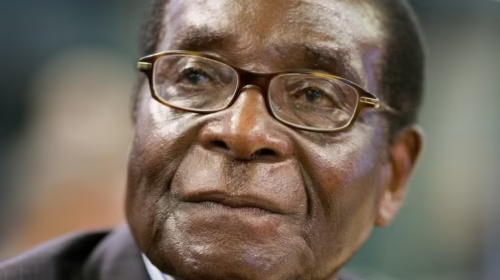The Office of the President and Cabinet (OPC) has strongly denied claims that President Emmerson Mnangagwa is considering unconstitutional measures to extend his term beyond 2028.
A recent article published by NewsDay alleged that Mnangagwa was bypassing ZANU PF structures to achieve this goal. The OPC labeled the story as defamatory and divisive.
In a statement issued on Wednesday, the OPC described the allegations as baseless, accusing the publication of attempting to erode national cohesion and tarnish the President’s reputation.
The OPC demanded a full retraction within seven days, warning of possible legal action. The statement emphasized that legal avenues would be pursued if the publication failed to comply.
The controversial article claimed that Mnangagwa was using “parallel structures” outside official party frameworks to secure a term extension. The OPC dismissed this as false and malicious.
According to the statement, the article falsely suggested disunity within ZANU PF and national security circles. It alleged these divisions were fueled by the President’s purported ambitions.
The OPC reiterated Mnangagwa’s public stance on respecting constitutional limits. It noted his repeated declarations of adherence to the Zimbabwean Constitution.
The statement pointed out that such allegations contradict the President’s consistent position, which has been widely covered by various media outlets, including NewsDay.
The OPC described the article as an attack on national unity, accusing the newspaper of spreading falsehoods designed to incite alarm and destabilize the country.
The response clarified that the opinions of individuals or groups on constitutional matters cannot be attributed to the President. It rejected the notion of so-called “parallel structures.”
The OPC also highlighted ZANU PF’s constitutional provisions for affiliate groups, dismissing claims of disharmony within the party. It labeled such suggestions as baseless and inflammatory.
This marks the second time in recent months that NewsDay has been accused of publishing false reports about Mnangagwa. The OPC criticized the newspaper for repeated violations of journalistic ethics.
The statement acknowledged Zimbabwe’s constitutional protections for press freedom but stressed that such rights do not extend to spreading falsehoods. It reminded the media of their responsibilities under the law.
The OPC warned that spreading defamatory content could result in legal consequences. It urged the publication to adhere to ethical reporting standards to avoid future disputes.
For now, the OPC awaits NewsDay’s response to its demand for a retraction. The unfolding legal implications could set a precedent for how similar cases are handled in Zimbabwe.
As the seven-day ultimatum approaches, the media landscape is closely watching how both parties will proceed in this highly publicized dispute.













